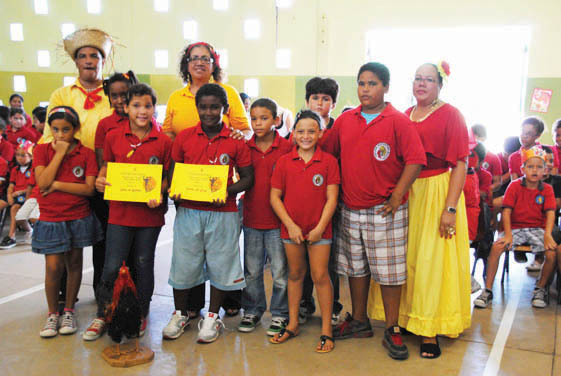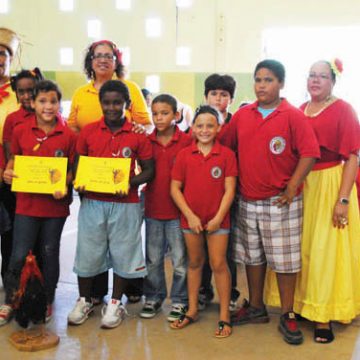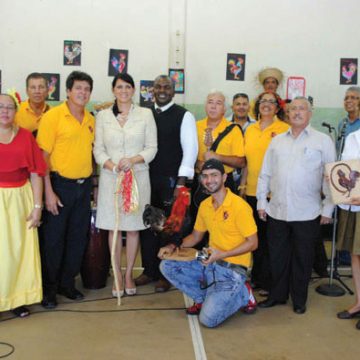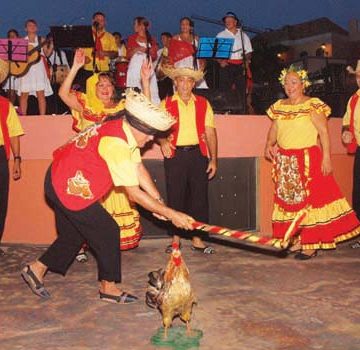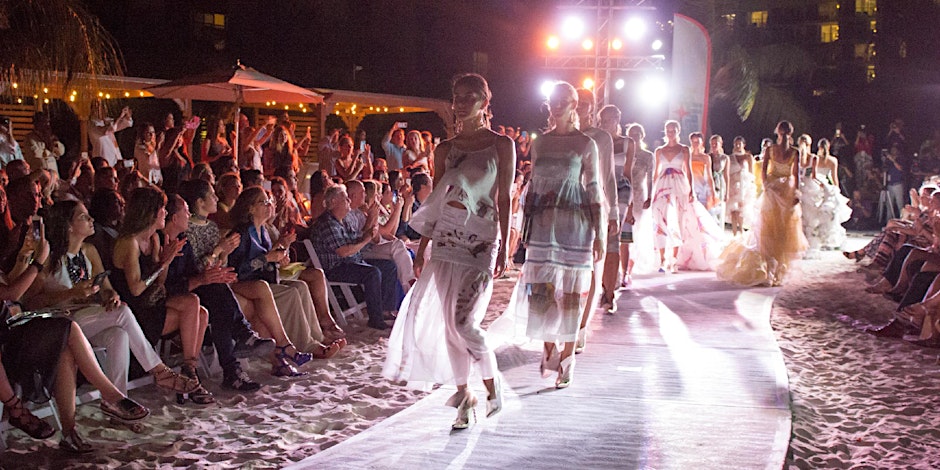Courtesy of: The Morning News
By: Rosalie Klein
Most cultures have their traditions for celebrating the harvest and times of plenty; for Aruba, it is the Festival of San Juan Dera Gai coming up on June 24. The regional holiday began over 150 years ago with the Festival of St. John the Baptist, dating back prior to 1862. It had its origins in Mexico, was adopted in Guatemala and Venezuela, and was eventually integrated into Aruba’s island culture. “Dera Gai” means “Bury the Rooster,” a particular ritual of the San Juan Festival native to Aruba.
The holiday was a time for feasting and great overindulgence in alcoholic beverages. In historic times, burying of the rooster entailed a formalized competition to behead the unfortunate bird, and was the highlight of the evening. It is believed it was also symbolic of the fate of St. John the Baptist. Those participating in the event were usually quite drunk, so their efforts to win were lengthy and comical. The winner received the bird as a prize, which usually then went into the soup pot, so nothing went to waste.
In our modern and more humane times, the contest has evolved into a ritualistic dance that a number of island folkloric groups perform during the holiday. Today, the rooster is now replaced with a native gourd, the calabash, as a substitute. Festive song and dancers in bright yellow and red costumes performing the traditional dance, are the heart of celebrations that various community centers schedule within their neighborhoods to observe the holiday. A ritual bonfire, replicating the practice of clearing the fields of chaff by setting them afire, will usually end the evening.
This year, a team from Aruba’s Department of Culture began visiting schools to teach the children about this holiday and their cultural roots. For two weeks, through June 13, the Dera Gai team will visit a total of 50 schools, during their morning sessions. This entertaining break for the students will also enlighten nearly 20,000 island youth. “It is the assigned task of the DCA to encourage each generation to honor and maintain the distinct aspects of our Aruban culture,” noted committee leader John Fleming, when announcing the upcoming school schedule.

